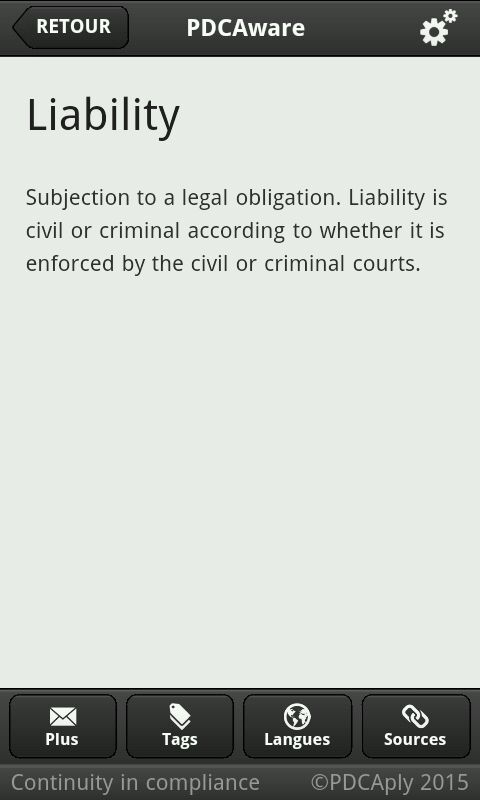Isolation is a cornerstone sustaining PDCAdvise.
Individuals using this digital service are bearing responsibility (see definition at the botton of this page). Even if they are employed by the organization, their positon at the top of the organigram of the site or of the organization makes them legally liable for regulatory obligations.
Regulatory obligations are laid out in regulatory texts and in technical norms made mandatory by regulatory texts. Some countries, like USA, provide access over the Internet to 13142 technical standards used in regulation but not necessarily made mandatory by regulatory texts while other countries, such as France, offer a list of 191 technical standards made mandatory by regulation but no usefull access to technical standards.
Reading regulatory texts over the Internet is made possible on dedicated web sites such as those of Belgium, of Canada, of France, of Switzerland as well as the European Union. Making sense of the content of these web site is not an easy experience. Usability of these web sites, albeit perfectible, is not the root cause of usage difficulties. Regulatory texts are made of articles. Modifications, abrogation and insertion of articles as well as pointers to other articles in the same regulatory text (internal references) and pointers to articles in other regulatory texts (external reference) contribute to Legalese, a language different from plain or common English
There are as many area in which regulation imposes obligations than there are types of specialized layers amenable to defending a responsible manager during litigation in a court of law. Larger organizations employ functional managers carrying knowledge and skills to conduct each area’s regulatory intelligence. This staff acts as an internal provider serving the many sites of the larger organization. Organization less well staffed have to contract external experts to perform regulatory intelligence for a fee.
PDCAdvise makes it possible
- to break down barriers between individuals bearing responsibility and other people, by zeroing on and making visible to everybody the site characteristics that make mandatory each regulatory obligation
- to conduct regulatory intelligence with a self-service eliminating tedious reading of regulatory texts (isolation from complexity) in the same way one can drive a car without mastery of technologies implemented in the engine
- to isolate essential obligations among the multitude and to route the majority of compliance efforts and resources to complying to essential obligations
- to ask question in English to our customer service representatives who are not lawyers but can nevertheless guide you in profiling your site and performing your regulatory intelligence.
Our belief of the relevance of isolation for regulatory intelligence rests on the following facts:
- a productive reading of regulatory texts can only be performed by select lawyers and law makers
- in a state of law, opposing to regulatory texts is an ideological attitude as awkward as opposing to rain or opposing to globalization
- volume, change frequency, multiplicity of area and references in regulatory texts should be addressed with technical means comaparable to those used to address issues with a comparable magnitude of complexity such as application sofware used to perform book-keeping (ERP rather than ledger and pen) or to design a part (CAD rather than drawing board)
Means mobilized by PDCAply to assure you are not ignoring the law:
- We pick all regulatory texts applicable to organizations as well as texts defining controls implemented by competent autotities.
- We identify the authoritative source for each text and develop appropriate crawlers to monitor changes occurring to these texts
- We obtain an electronic version of each text and resolve references
- We analyze texts and enter in our database the normalized data necessary to enable self-service for regulatory intelligence against a profile of your site
- Upon regulatory change we initiate a contact with you so that you can further profile your site and fine tune your regulatory intelligence
Means implemented by PDCAply to avoid your reading of regulatory texts
- We develop rulesheets and ruleflows in our database to enable the most effective questioning. We continuously improve rules based on the usage made by clients
- Before rules make it to runtime, we verify that they contain no contradictions, that they cover all possible cases and that they are exempt of loops.
- We use these rules in a rule engine dynamically making decisions on the next question in the profiling of a site.
- We provide definitions of terms used to formulate questions
- If a difficulty arises, a human person at PDCAply is accessible by phone or by chat to support you.

Definition of Liability in PDCAware
